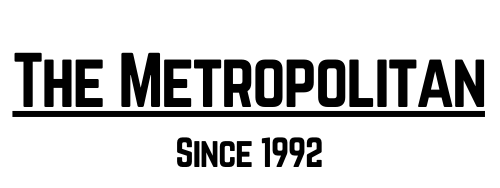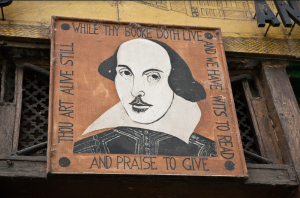
(Creative commons photo)
James J. Berreth
Opinion Writer
It is no secret that we are at that phase of American life when we are bombarded with political ads, each one disseminating views and opinions of the would-be elected. The mad season where the phrase “I am so and so, and I approve this message” constantly rings in our ears. We are force-fed ads that, for the most part, leave the viewer no more informed than they had been before and most of us are left to wonder, does any of it make any difference whatsoever? I believe if we put aside the all-too-frequent negativity found in PAC-funded attack ads, look beyond the circus that often accompanies electoral politics, we will see this mid-term election for what it is; a battle for the heart, soul, and direction of The United States for the next two to four years and possibly beyond.
On October 7th, 2022 Elaine Kamarck and Norman Eisen wrote an article for the Brooking Institution titled “Democracy on the ballot – How many election deniers are on the ballot in November and what is the likelihood of success?” They report that in this year’s mid-term elections, there are a total of 345 candidates running for various offices that are election deniers, or those that believe the false conspiracy theory regarding the 2020 presidential election and that it was stolen from former President Trump even with all evidence to the contrary. In my somewhat crude abbreviation of events, these candidates (using conspiracy theories as part of their agenda) want to impeach President Biden and rewrite history.
Locally, we have Republican Kim Crockett running for secretary of state against incumbent Democrat, Steve Simon. Crockett, who has repeatedly questioned the integrity of the 2020 election, lists three key messages of her campaign on Ballotpedia; all three pertain to our state elections and the misguided belief that these same elections were, and continue to be, unprotected. The evidence, of course. does not support her contentions and in fact, prove them absurd.
I recently had the opportunity to speak with our illustrious professor of social science, Dr. Matthew Filner, to ascertain what his thoughts were on the topic of voting. Professor Filner’s expertise extends to every corner of political science and there are few better qualified to illustrate the importance of voting. Fulbright scholar, and PhD. recipient from Indiana University, Dr. Filner has “served as communications director for Secretary of State Mark Ritchie; managed State Senator Steve Kelley’s 2006 gubernatorial campaign; managed Steve Simon’s 2004 Minnesota House campaign; and served as an advisor to Steve Simon’s campaign for Minnesota Secretary of State.”
My first question to Dr. Filner concerned his view on voting in the most basic of terms and he made several key points such as, “The people … who don’t vote are giving their power to someone else to make a decision about who should serve in office, what their priorities should be, where … and for whom it should be spent.” He further claims, “No one should give up their own ability to influence those core decisions … So, my view is you have power, use it. You have influence, use it. You have the ability to make student loan payments or student debt reduction, a priority, use it. If people who have those priorities don’t speak, they won’t be heard. And voting is our voice. Voting is a way that we express our political views.” In short, what Dr. Filner is claiming is that the right to vote is our power and this power needs to be exercised on every occasion.
Next, I asked Professor Filner for his take on this mid-term election cycle specifically, especially as it pertains to student citizens of Minnesota. Dr. Filner was quick to point out that this election is a constitutional officer year, meaning that “our governor, our attorney general, our secretary of state, and our state auditor are all up for election.” And additionally, “There probably are no other elected positions that have a more direct impact on college students, especially Minnesota State College students, than those offices.”
This notion of elected representatives making real-life decisions on our behalf is as clear as day, as are the consequences for these decisions. For example, Dr. Filner states that “it used to be that Minnesotans collectively paid for two-thirds of the college education of all students.” However, this all changed in 2003 under former governor Tim Pawlenty’s plan to balance the state budget without increasing taxes. One way he was able to fulfill this campaign promise was by slashing higher education budgets by $50 million and lower education budgets by $27 million.
One final thought on voting and in particular, regarding the basic rights that allow us to exercise our democratic prerogatives, is the issue regarding voting rights for minority groups and cultures. The less-than-secretive attacks on the constitutional rights of some have been playing out in courtrooms, legislative bodies, and across social media, all with the intent to deprive suffrage to African Americans, immigrants, and the formally incarcerated.
The Washington Post’s Editorial Board published an article titled “The Roberts court should end its assault on the Voting Rights Act” on October 7th. The article highlights the systemic attacks the US Supreme Court has taken to weaken the Voting Rights Act. In 2013, the Robert’s Court struck down Section 5 of the Act which was the most prominent weapon in combating states’ attempts to create discriminatory voting policies. Subsequent actions by Southern states after this ruling showed that in fact, Section 5 was and is still needed.
I leave off with this final statement from Dr. Filner, “We’ve seen the right to vote being curtailed, access to the ballot, opportunities to vote early or absentee or without having to wait in long lines … we see a lot of movement around the country towards restraining the right to vote, and the Secretary of State is an absolutely essential office in protecting that right to vote. And so, you know, like anything in a democracy, if you don’t use it, you’ll lose it.” Words fit for this moment in time.


